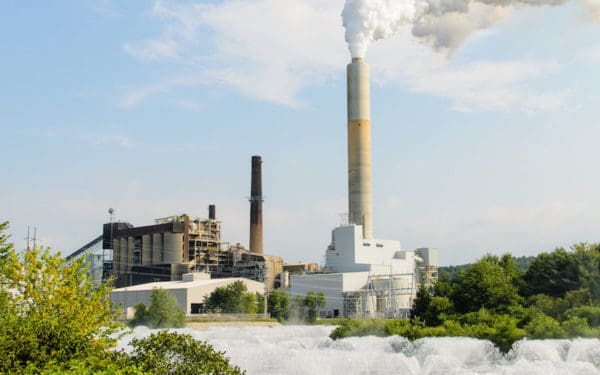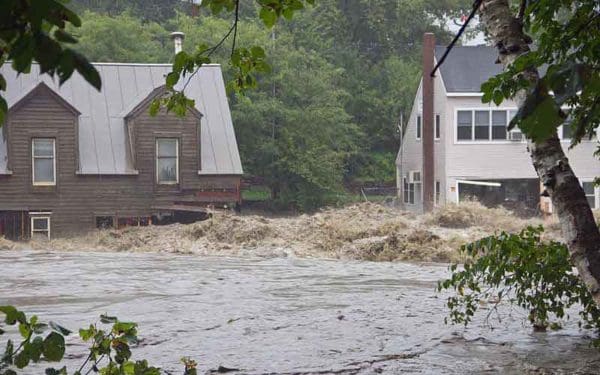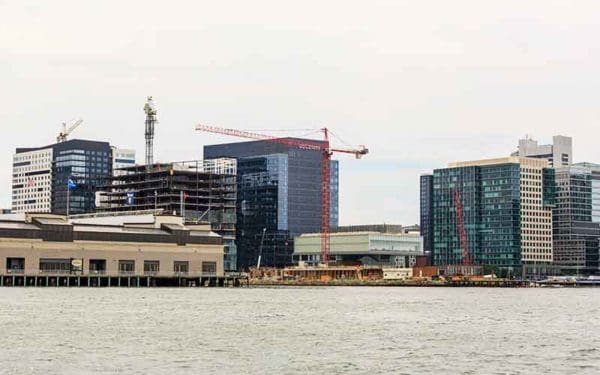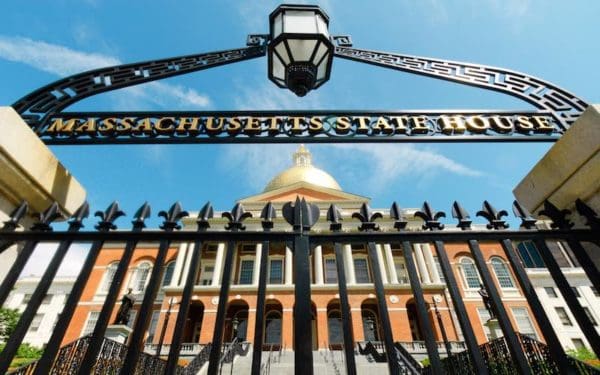Aug 03, 2021
“The Merrimack Station coal plant is destroying the health of the Merrimack River and it’s time they’re held accountable,” said Greg Cunningham, Vice President and Director of CLF’s Clean Energy and Climate Change program. “The permit for this fossil fuel plant must do more to protect this iconic waterbody, and the appeals board clearly agrees. CLF will continue to work with the EPA to make sure the next iteration of this permit protects the wildlife that call the river home.”
Apr 08, 2021
Biden’s infrastructure package represents a critical investment in our future, infusing much-needed funding to ramp up New England’s transition to a carbon-free economy by 2050.
Apr 01, 2021
No state here in New England has required its utilities to assess their vulnerability to climate change – or take action to prepare for it. With our homes, lives, and livelihoods at stake, allowing utilities to be so unprepared is irresponsible and simply too big a risk to take. CLF is pushing to change that – starting with Massachusetts.
Mar 29, 2021
“After four years of Trump obstructing clean energy and promoting dirty fuels at every turn, President Biden’s focus on offshore wind comes not a moment too soon,” said Bradley Campbell, President of CLF. “Wind has the potential to power our homes, our green economy, and our transition away from polluting fossil fuels for good. However, projects must be responsibly sited to protect ocean life as well. Today’s announcement should be a boon to New England’s nascent wind industry and a strong start to the administration’s pledge to have a zero-emission grid by 2035.”
Mar 12, 2021
Any plan to lower emissions in Massachusetts must not only consider how to cut the largest sources of carbon pollution – for the Commonwealth, that’s transportation and heating – but also how to ensure all residents have equal access to its solutions.
Feb 08, 2021
From the second they are born to their last breath, North Atlantic right whales help our climate by making our ocean more resilient. We need to push for their protection so that they can do their part in helping to create a greater future for all.
Jan 29, 2021
Biden’s flurry of executive orders addressing climate change, conservation, and environmental justice has us optimistic. Now we must ensure his administration follows through and turns these orders into meaningful and actionable policy.
Jan 27, 2021
Advocates cheered when President Biden reinstated the Obama-era flood protection standard among his first acts in office. The Biden administration is sending a clear signal that building according to climate patterns of the past is no longer acceptable – we must acknowledge and address increasingly frequent and extreme flooding caused by climate change. Reinstating the federal standard is a critical first step for increasing our national infrastructure’s climate resilience – one that signals the urgent need for action here at home.
Jan 27, 2021
Cities with aggressive climate standards are running into roadblocks. Achieving these goals will require strong building energy codes and ending the use of fossil fuels in buildings and homes. We’re starting to see that neither the natural gas utilities nor the real estate industry will sit by quietly as cities and states enforce stronger building codes and ban natural gas infrastructure in new construction.
Jan 15, 2021
Massachusetts legislators overwhelmingly passed critical climate and justice legislation. But Governor Baker vetoed the bill – choosing not only to ignore sound science, but also to let decades of racist policy targeting low-income, Black, and Brown communities go unchallenged.










